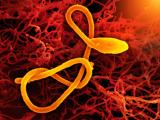Apr 29, 2005 (CIDRAP News) Only a few new cases of Marburg hemorrhagic fever have been reported in Angola in the past week, but recent lapses in hospital infection control have raised a risk of prolonging the epidemic, the World Health Organization (WHO) said today.
Angola's Ministry of Health reported 275 cases, of which 255 were fatal, as of Apr 27, the WHO said. That's an increase of 9 cases and 11 deaths over the numbers reported by the WHO a week ago, signaling that the outbreak is continuing to slow down. Uige province, the center of the outbreak, accounted for 266 cases and 246 deaths as of yesterday.
But the WHO said recent incidents at Uige's main hospital might have given the outbreak a boost that could extend it for several weeks.
In two instances this week, doctors "were directly exposed to blood from Marburg patients being treated on general wards, without adequate infection control," the agency said.
"In another recent incident, the body of a deceased patient was left, uncleaned and uncollected, on an open ward for more than eight hours, placing hospital staff and other patients at risk," the WHO said. "In another incident, a severely ill baby admitted to the paediatric ward was placed in a cot, without disinfection, immediately after the body of another baby, who died from the disease, had been removed. In line with cultural practices, mothers are present on the paediatric ward and share the care of severely ill children, thus also sharing the exposure risk."
The incidents "indicate that infection control procedures at the hospital have been seriously compromised," the agency said. The staff failed to follow protocols for screening new patients for exposure history and fever and separating possible Marburg patients from patients on the hospital's general wards.
"Under such conditions, amplification of transmission is highly likely to occur," the WHO statement continued.
"At this point in the outbreak, an amplification event would be a setback capable of extending the presently intense containment efforts for several weeks. During past outbreaks of viral haemorrhagic fevers, such events have historically resulted in an additional two transmission cycles and a second wave of cases."
The agency said authorities considered closing the hospital but decided against it. That step would deprive many patients of urgently needed care while forcing others to go to private clinics where risks are even higher than in the hospital.
Angola's health minister and the head of the Angola WHO office flew to Uige yesterday to investigate the situation and find solutions, the WHO reported. The first corrective steps were taken today through the cooperation of Angolan officials, the WHO, and Medecins Sans Frontieres.
The agency also said investigations of several recent deaths clearly indicated that home-based treatments involving unsafe syringes have helped spread the virus. As a result, "A massive door-to-door campaign, supported by banners and posters throughout Uige municipality, was launched yesterday to inform residents of the associated dangers and collect and safely destroy syringes. The campaign has continued today."
The international response to the Marburg outbreak began Mar 22, following reports that 39 people, most of them children, had died of a mysterious hemorrhagic fever. On Mar 23 the disease was identified as Marburg. The illness causes dramatic signs and symptoms, including high fever, vomiting, and bleeding from multiple sites, and can kill in a week or less.
Marburg, for which there is no vaccine or cure, was first described in 1967. The current outbreak is the largest on record.
See also:
Apr 29 WHO statement
http://www.who.int/csr/don/2005_04_29/en/index.html




















